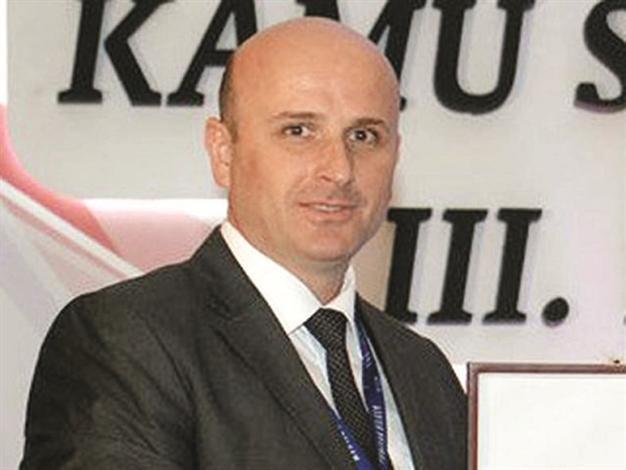Major spying case uncovers crook in Turkey’s top science body
Nuray Babacan / ANKARA

Hasan Başaran, a relative of former Science, Technology and Industry Minister Nihat Ergün, was employed in July 2012 at TÜBİTAK although he did not have a diploma. Within four months, Başaran was promoted to become the manager of TÜBİTAK's Public Certification Center with a monthly salary of 7,000 Turkish Liras.
An alleged fraudster with familial links to Turkey’s former science minister has been exposed as part of a probe into a spying case that encompasses wiretapping then-Prime Minister President Recep Tayyip Erdoğan and other top-ranking state officials.The arrests at the Scientific and Technological Research Council of Turkey (TÜBİTAK) showed that Hasan Başaran, a relative of former Science, Technology and Industry Minister Nihat Ergün, was employed at the country’s top science body although he did not have a diploma.
Başaran, who is married to Ergün’s niece, shocked the whole family, according to the former minister who also supervised TÜBİTAK, speaking to Hürriyet.
The family used to think that Başaran was a Middle East Technical University (ODTÜ) graduate, and only learned about the fraud when he was detained two days ago, Ergün said, highlighting that he had no role in finding the figure employment at TÜBİTAK.
“I am the relative of a person who is victimized,” he said, in reference to his niece, the seven-year wife of Başaran who was unaware of the fraud. “The family is now facing a great trauma.”
Başaran introduced himself to TÜBİTAK as a cryptology specialist, the former minister added.
The suspect also enjoyed shorter compulsory military service thanks to a fake diploma from the prestigious university.
The family does not know about his links to U.S.-based Islamic scholar Fethullah Gülen, the leader of what Erdoğan calls the "parallel structure," Ergün said.
Erdoğan accuses Gülenists for illegal wiretappings and a “coup attempt,” starting from the revelation of a large corruption investigation in December 2013.
Başaran reportedly said in his testimony that he produced the diploma in a photography manipulation program and developed himself in cryptology in order to not arouse suspicion.
More arrests in espionage probe
Meanwhile, four of 11 suspects were arrested on Jan. 22 as part of the espionage investigation.
The Gölbaşı Public Prosecutor’s Office in Ankara demanded that 28 people be detained as part of the probe into the Telecommunications Directorate (TİB) and TÜBİTAK.
Fifteen of the 26 suspects were released by the prosecutor after questioning, while 11 suspects were sent to court. The court arrested four of the 11 suspects, including Osman Nihat Şen, the former deputy head of the TİB, who was detained on Jan. 21 in front of the court where he had arrived with lawyers to testify.
The suspects face charges including “spying,” “destroying the unity of the state,” and “wiretapping both crypto-secure and regular telephones.”
Five of the 26 suspects were released on probation, while two others were released after further questioning.
Hasan Palaz, the former vice president of TÜBİTAK, who was released on probation, spoke to the media while leaving the courthouse, saying they had been detained “without any concrete evidence,” and were being asked to prove that they are innocent.
“There is no evidence, but they are asking [us] to prove that we are not guilty. First the prosecutor did it and then the judge,” he said, adding that he would appeal the probation ruling.
Three of the wiretapped crypto-secure phones belonged to President Recep Tayyip Erdoğan, and one of these was likely used by his son Bilal Erdoğan.
Speaking on Jan. 21, President Erdoğan said he knew that he had been wiretapped on a number of occasions when he was prime minister. “This is an issue that I have been talking about for the past two years,” he told reporters.
















